Weekly Roundups - November 4th
A Tutankhamun-filled Roundup! In honor of the centennial, we are devoting this week's roundup to Tut
Afterlives of Ancient Egypt—Live Patreon Event
King Tut Died Long Ago, but the Debate About His Tomb Rages On
The NYTimes article is a good summary of Dr. Reeves’ arguments and the rebuttals from other scholars in the field. There are also some great quotes from Kara in here where she gets straight to the heart of the debate “as one of Dr. Reeves’ few champions,”
“I am not one of the many scholars laughing behind their hands,” she said. “Nick’s theory is brilliant but easily discounted in a very political and nationalistic Egypt that has refused to give permits to Western scholars who disagree with the party line. Maybe there’s nothing beyond the north wall of Tutankhamun’s tomb. Maybe it’s Al Capone’s safe. But if there is something there, this could potentially be the discovery of the millennium.”
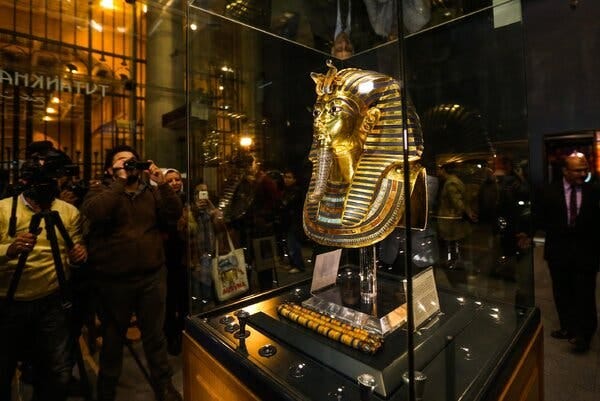
Anniversary of the ‘Discovery’ of Tut’s tomb—November 4th
In celebration of the 100 year anniversary of the discovery of Tut’s tomb, we highly recommend a dive into the Griffith Institute archival material. All of Howard Carter’s diaries, journals, and field notebooks are digitized and available online. Additionally, all the object cards and photographs are available as well. You can spend hours looking through the materials, and the Griffith Institute recently added more materials. Happy researching!
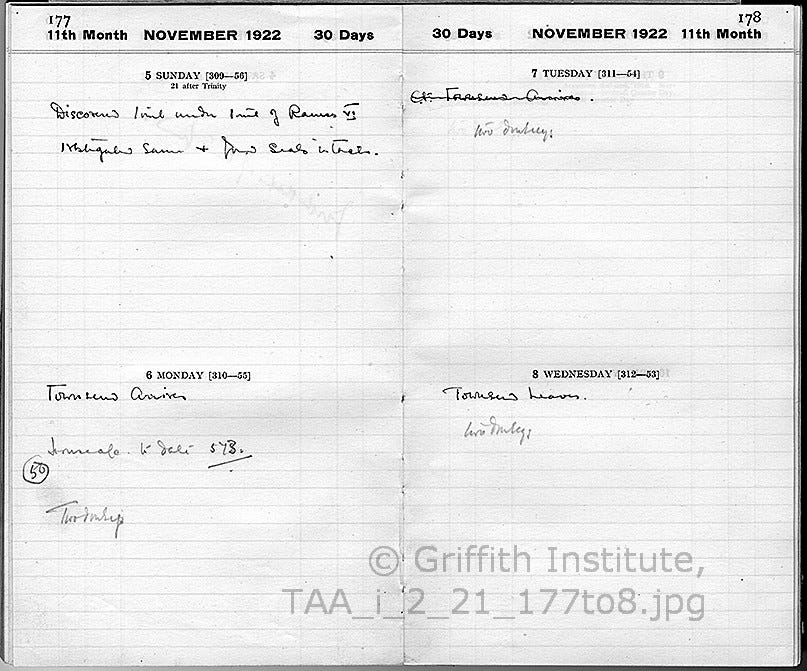
Egyptians helped discover King Tut's tomb. Now, they're finally being recognized.
An exhibition featuring archival images from the excavation of Tutankhamun’s tomb now at the Bodleian Library at the University of Oxford highlights Egyptian contributions that are often overlooked, because all credit for the discovery is generally given to Howard Carter and Lord Carnarvon (in the same way that all credit for the cracking of the hieroglyphic text is given to Champollion who was using his knowledge of Coptic, learned from many Egyptians).
Many Egyptians participated in the excavation of the tomb: Ahmed Gerigar, Gad Hassan, Hussein Abu Awad, and Hussein Ahmed were all employed as foremen. Mohamed Saleh Hamdi Bey, a medical doctor, assisted with the autopsy of Tut. We should also mention the discovery of the tomb stairs by the water boy, Hussein Abd el-Rassul (read more about that here). Early 20th century excavations generally minimized the work of the Egyptian excavators but with continued archival work we can place a spotlight on them.
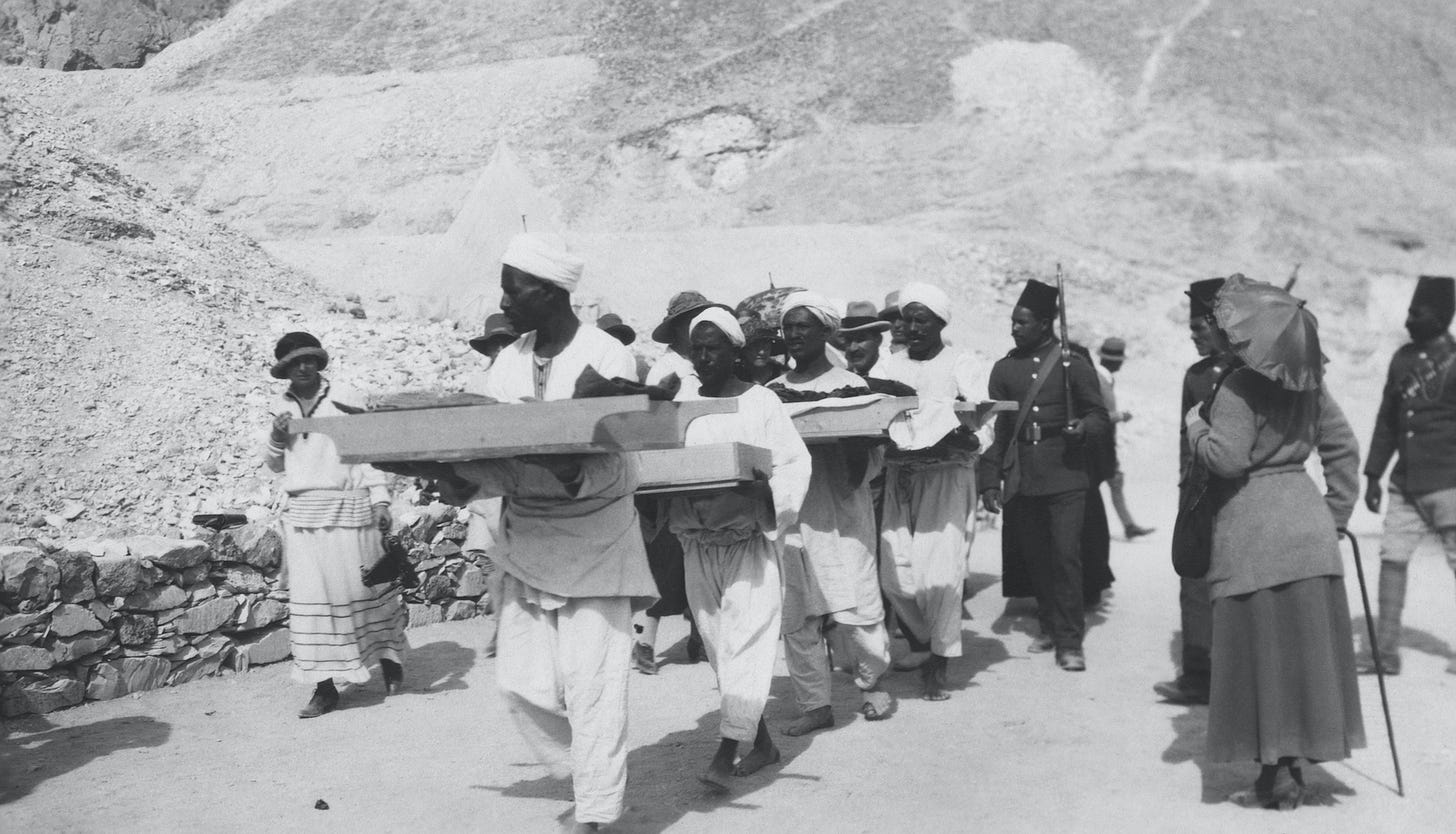
Reimagining Tutankhamun as a Warrior
When most people imagine Tutankhamun, they picture a frail, sickly king plagued by several physical deformities—club foot, severe scoliosis. Many recent bodily reconstructions in the news have not helped (we won’t link; just google)… Still other researchers point to the hundreds of walking sticks in his tomb, not to mention the number of images that show Tutankhamun with a cane. However, Bob Brier, in his new book, “Tutankhamun and the Tomb that Changed the World,” argues the exact opposite.
Recent reading of the CT scans show no club foot, or at least only a slight one. The walking sticks could instead be interpreted as a sign of authority, rather than utility, Brier argues. And there is plenty of artistic and architectural evidence to show Tutankhamun fulfilling his role as maintaining Maat (cosmic order) by fighting battles, shooting arrows, and generally being a strong warrior king.
Obviously we—Kara, Jordan and Amber—cannot read CT scans, but we wonder: why can’t both identities be accurate? Why make the assumption that having a physical deformity precluded Tut from being a great “warrior” king? A little abelist, no?
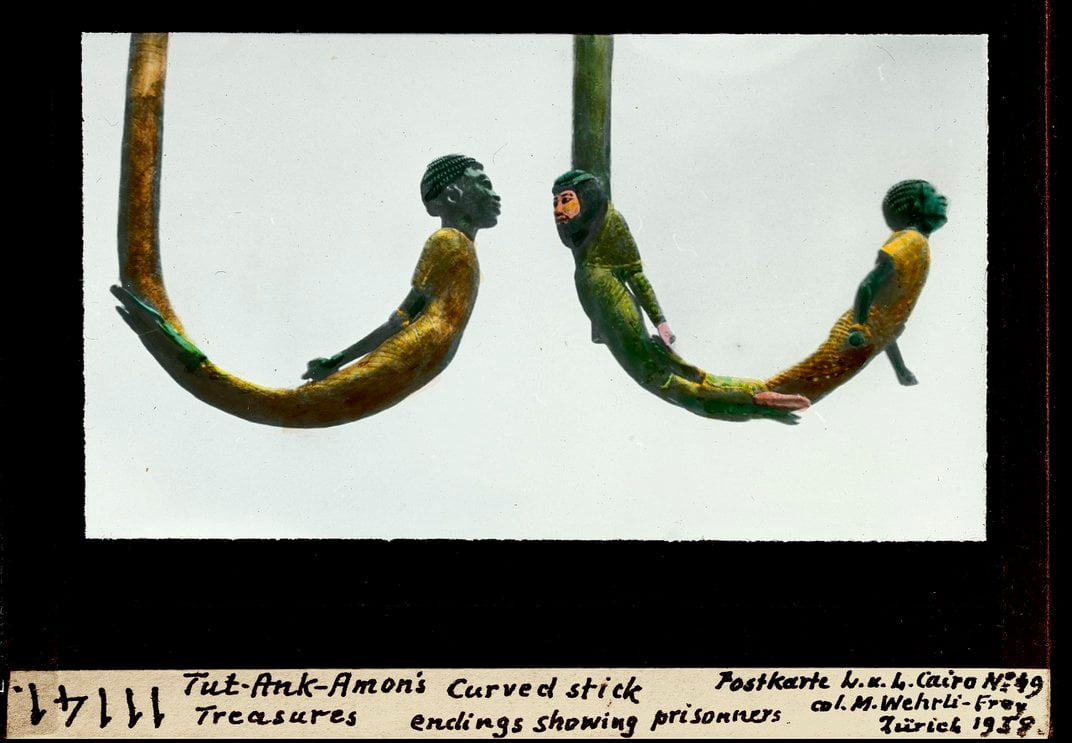
Tut Centennial Merch—Cool or weird?
With any historic event comes merch, most especially the Tut Centennial. Our first piece of “Cool or Weird?” merch is The 100th Anniversary of the Discovery of Tutankhamun's Tomb 2022 UK £5 Gold Proof Coin—yours now for ONLY £2,975.00.
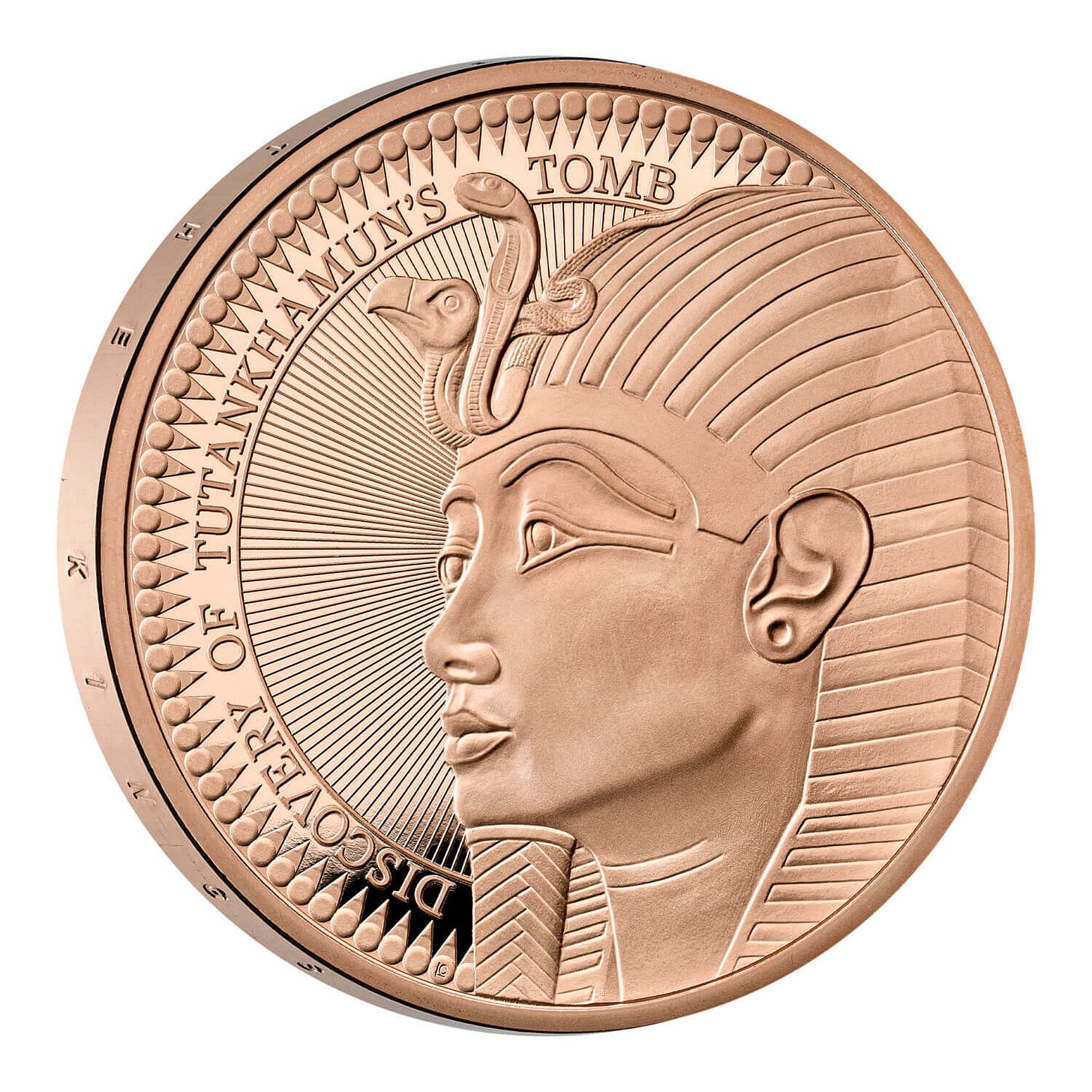
Next we have Lord Carnarvon’s Highclere Castle Gin, “ like the discovery of King Tut’s Tomb, will go down in history, never to be released again.”
Cool or weird!? The coin gives off hard imperialism vibes—claiming British ownership over the discovery much? And one wonders what Tut would think of gin. Egyptian wine did include botanicals, but nothing close to the AVB of gin. Now we have to create some Tut-themed cocktails. Don’t worry, we got that assignment…
Egyptian Origins of Israelite Monotheism?
Ending our Tut-filled Roundup, we recommend watching Kara’s discussion of the debate on the origins of monotheism. Did Tutankhamun’s dad, Akhenaten, originate the practice of monotheism or was something else going on? Can we really call it monotheism?
What are your thoughts??






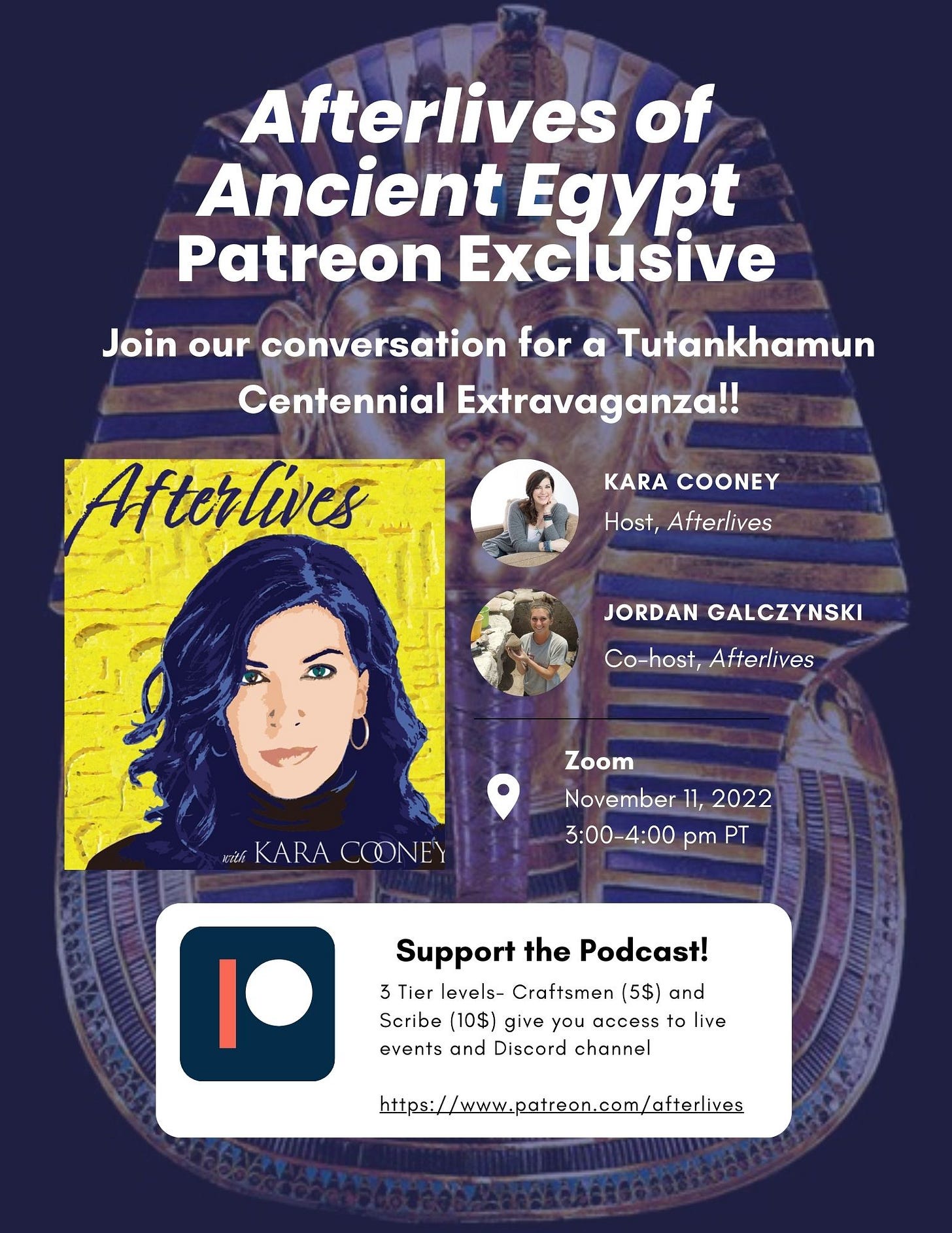
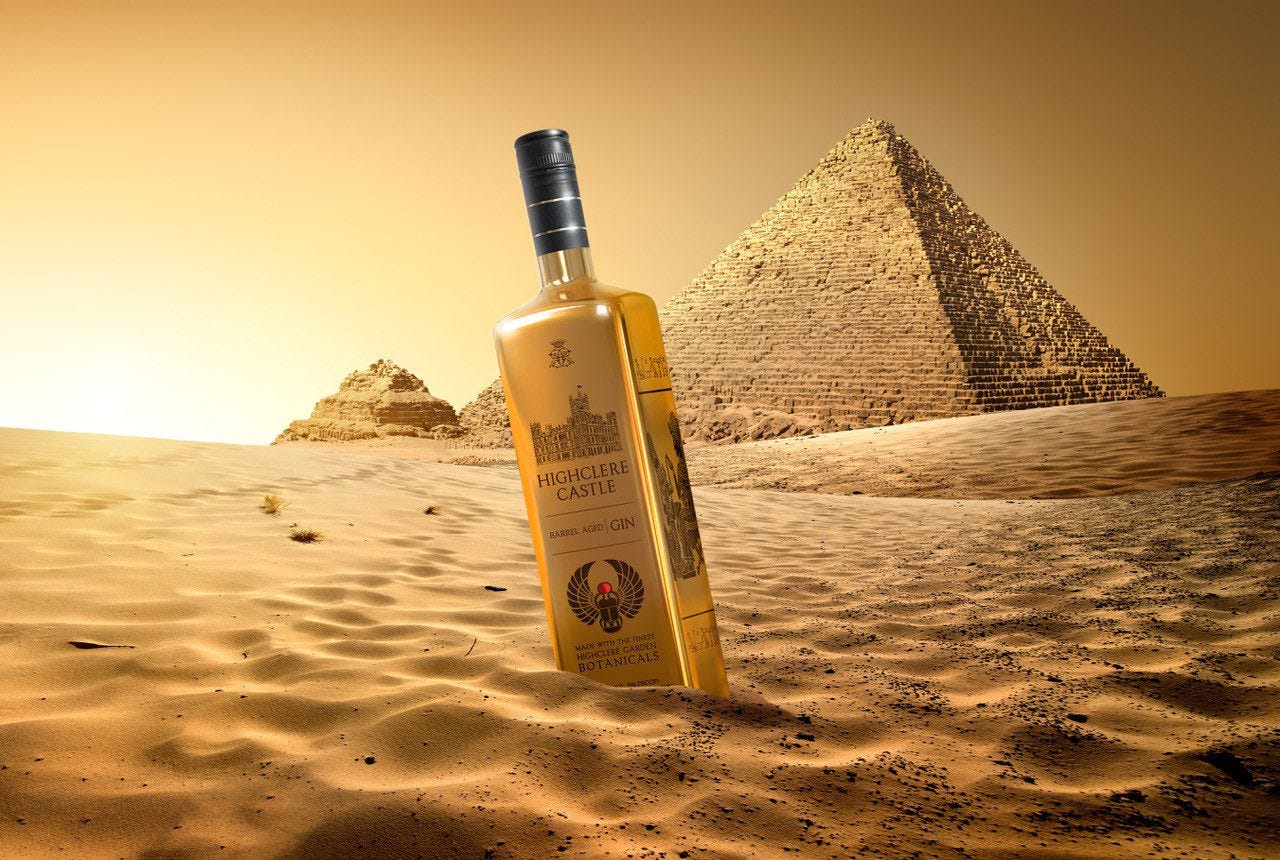
love these posts! Really good collection of info! Thank you